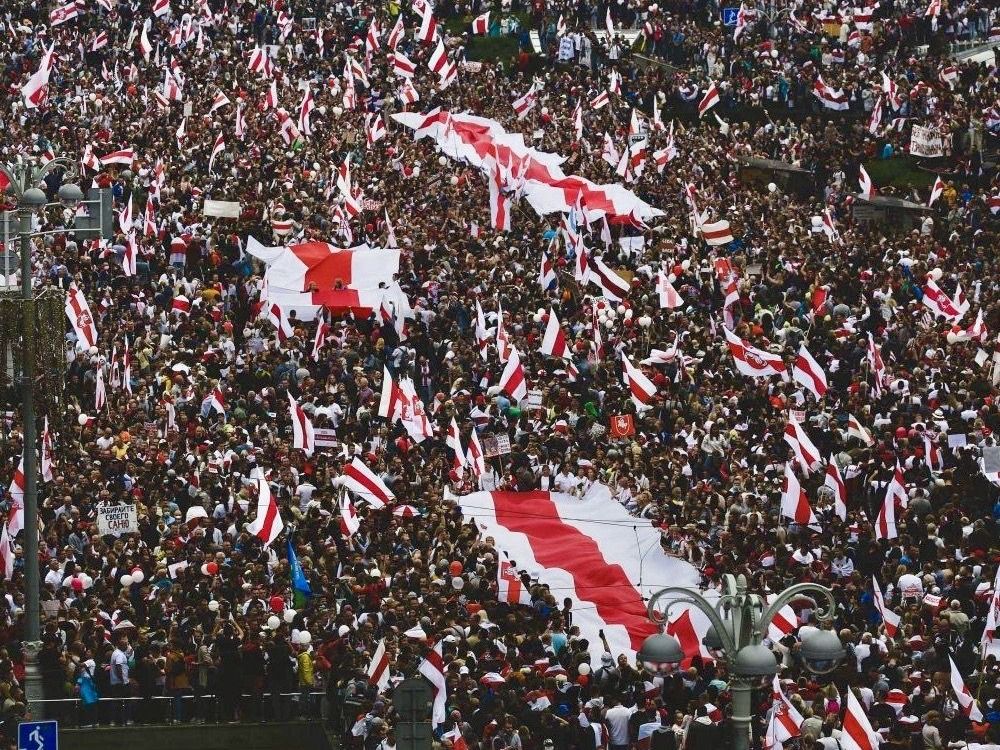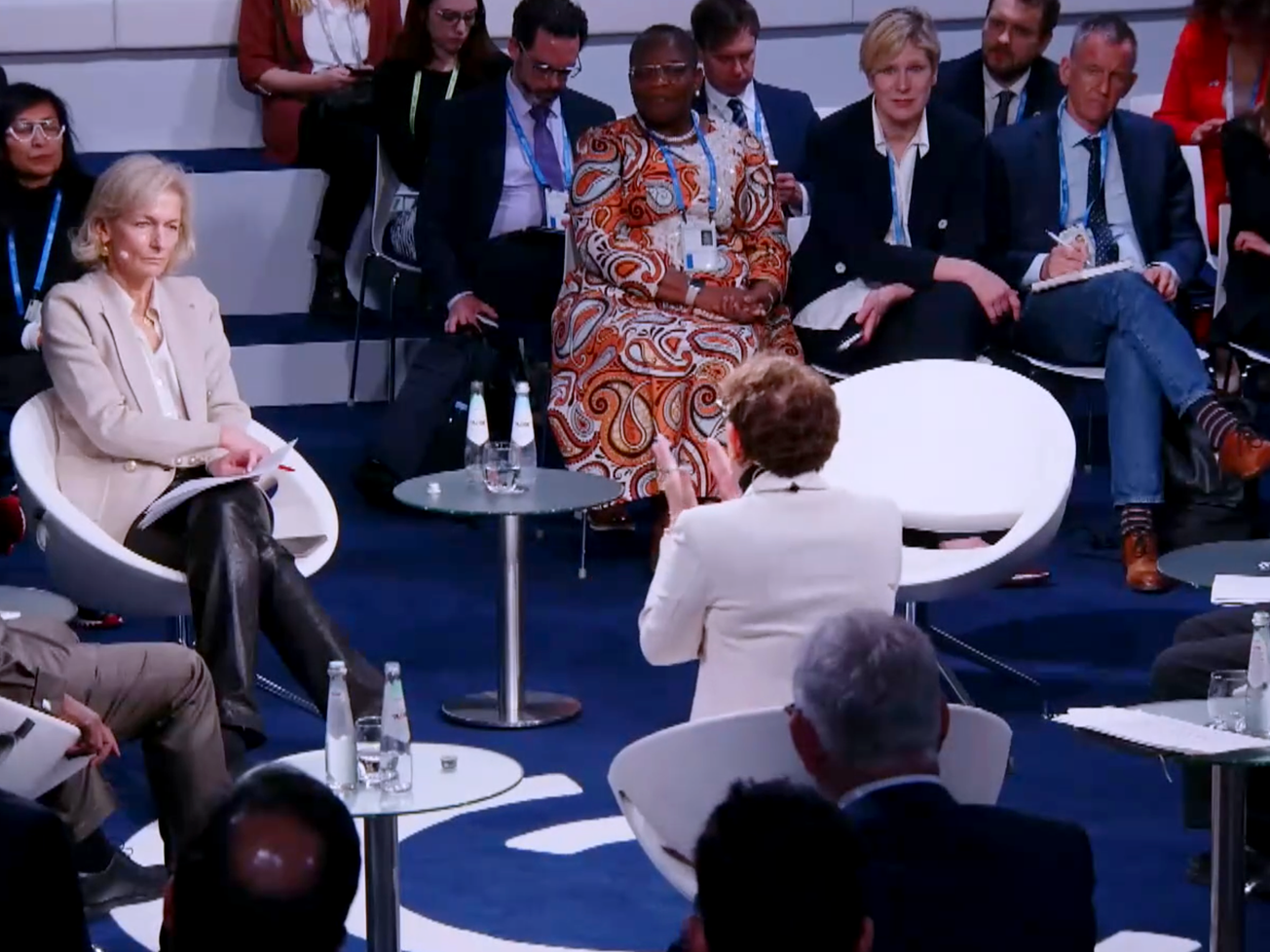GENEVA (AN) — The U.N. Human Rights Council voted overwhelmingly on Friday to examine reports of widespread abuses stemming from Belarusian authoritarian leader Alexander Lukashenko’s crackdown over a disputed presidential election.
The 47-nation council approved resolution, submitted by Germany on behalf of the European Union, in a 23-2 vote with 22 abstentions. Only Eritrea and Venezuela were opposed.
The resolution, which is legally non-binding but carries political weight, refers to alleged “torture and cruel, inhuman or degrading treatment or punishment by law enforcement and prison officials.”
It calls on Belarus to “cease the use of excessive force against peaceful demonstrators” and directs the United Nations' top human rights official, Michelle Bachelet, to "monitor closely the situation of human rights in Belarus in the context of the 2020 presidential election" and report back before the end of 2020.
Her deputy, Nada Al-Nashif, told the council that since the protests began there have been thousands of arrests, hundreds of reports of torture and other ill-treatment, including sexual violence and reported torture of children, and violent abduction of people in broad daylight by masked individuals.
"Armed police and security personnel are being deployed in a near-systematic pattern of unnecessary or excessive use of force against largely peaceful demonstrators," she said, also pointing to persecution and targeting of opposition figures and the detention of journalists and restrictions on the nation's internet access. "It is vital for the future of Belarus to break these cycles of increasing repression and violence."
Tens of thousands of people in Belarus, an Eastern European nation of 9.5 million people that joined the United Nations as a founding member in 1945, protested and went on strike after Lukashenko declared himself winner of an August 9 election that opposition groups and many Western nations reject as corrupt.
Three days after the election, Bachelet, a former president of Chile who has headed the Office of the U.N. High Commissioner for Human Rights, or OHCHR, since September 2018, condemned the violent response of Belarusian authorities to the peaceful mass demonstrations growing across the country.
"People have the right to speak up and express dissent, even more in the context of elections, when democratic freedoms should be upheld, not supressed," Bachelet said in a statement. "I remind the Belarusian government of the absolute prohibition on torture and other ill-treatment of detainees."
Debate tensions
Tempers flared among the diplomats staking out positions on Belarus before the usually sedate council.
Belarus’ U.N. ambassador, Yury Ambrazevich, with the political backing of China, Russia and Venezuela, unsuccessfully attempted to invoke the council's rules of procedure to block the main opposition leader of Belarus, Sviatlana Tsikhanouskaya, from delivering a statement to the council remotely.
Ambrazevich said that the “mass media and social networks” were distorting reality, and there was "no official record" of sexual violence against protesters or people being illegally detained or "disappeared."
However, the council's president, Elisabeth Tichy-Fisslberger, the Austrian ambassador in Geneva, allowed Tsikhanouskaya and others to keep detailing the crackdown in Belarus. Tichy-Fisslberger said the discussion was unfolding according to the same rules used in previous debates. Debate participants, some wearing masks, met in a larger U.N. chamber than usual to allow for more social distancing.
Tsikhanouskaya said the opposition demands an immediate end to the violence and release of all political prisoners, access granted to U.N. human rights investigators and "free and fair" democratic elections. Lukashenko has kept power since 1994 by resorting to vote-rigging and brutal suppression of opponents.
"We, the democratic majority of Belarusians, have repeatedly expressed our commitment to the rule of law, to democratic values and to peaceful dialogue," said Tsikhanouskaya, a human rights activist and former English teacher who agreed to replace her husband, Sergei Tikhanovsky, on the presidential ballot after he was arrested by authorities in a May crackdown.
"I once again emphasize our willingness to talk with the authorities and look for peaceful solutions to the crisis that has affected our nation," she said by video conference. "Our demands are simple and completely in line with all basic international norms."







